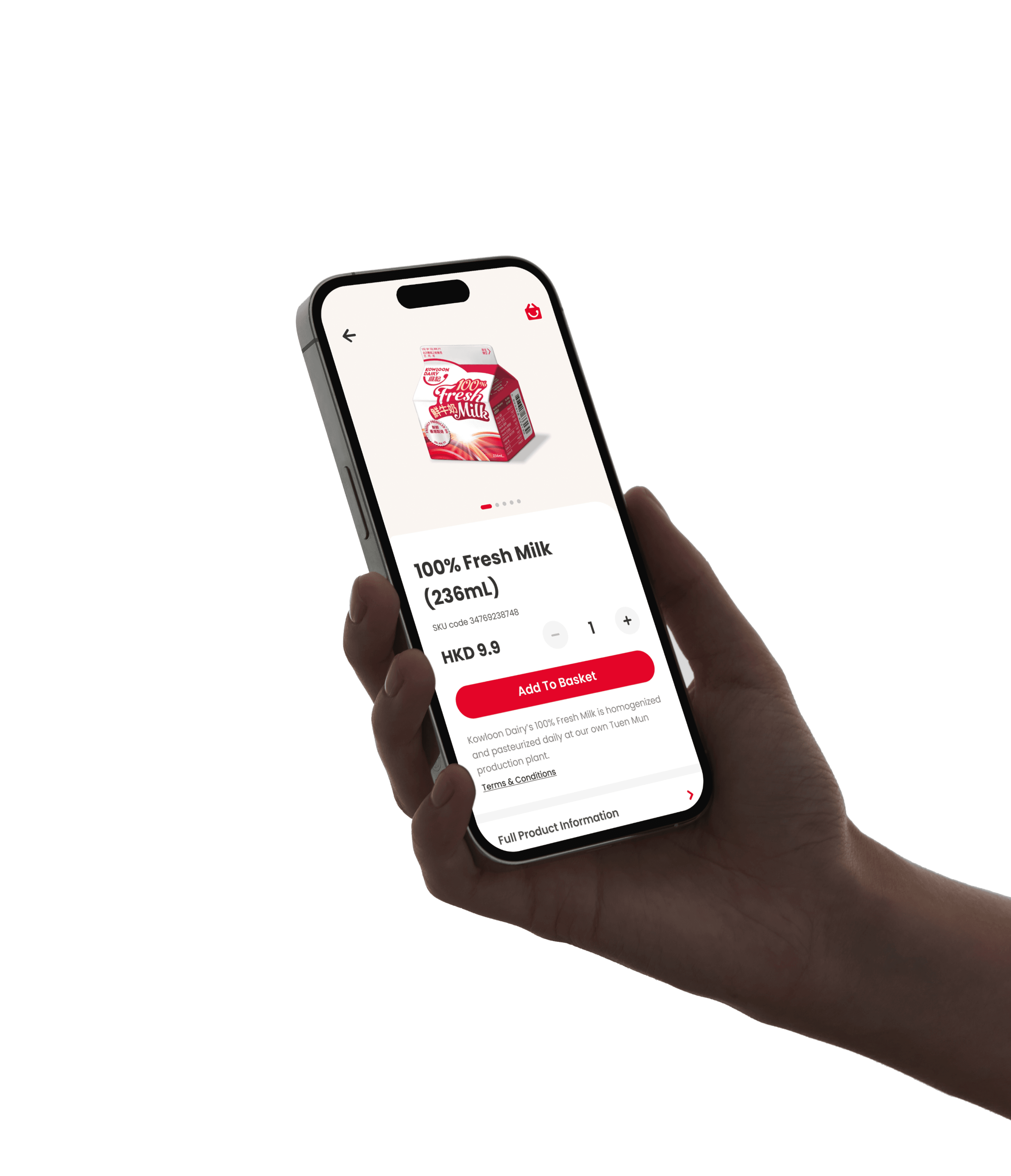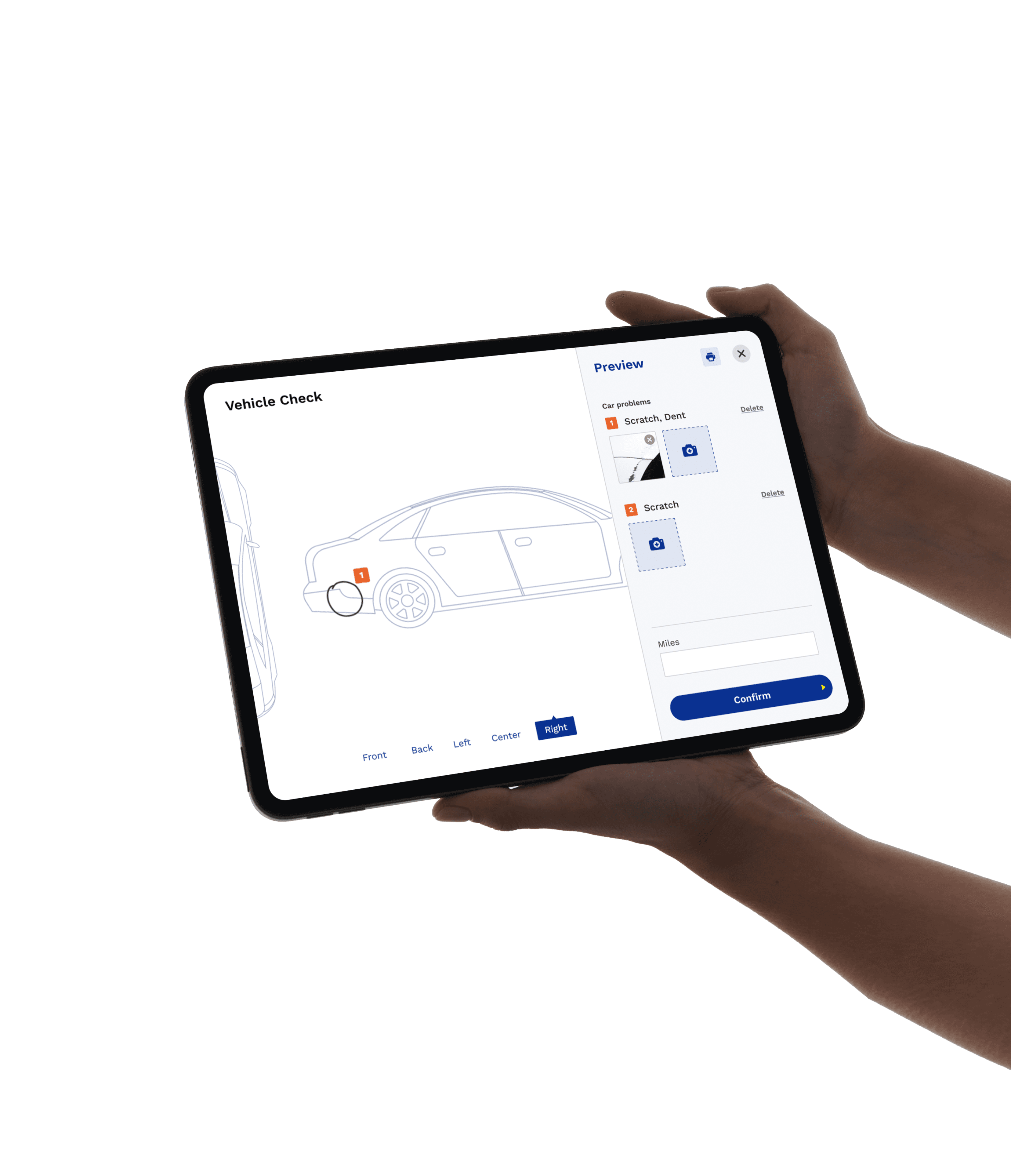Prezo is an all-in-one presentation web app based in San Francisco. It offers a time-saving solution for creating slides, documents, and websites with AI.
Prezo aims to enhance productivity and streamline workflow by simplifying the design and content creation process.
100x
100x
Increase in the total user base
20x
20x
Increase in daily active users
Product Type
AI presentation building tool (Web App)
Team
Jason Cheung (Product Designer)
Rohit Rajan, Omkar Deshmukh (Founder)
Daniel Zhang (AI Engineer)
Jessica Ho (Full Stack Engineer)
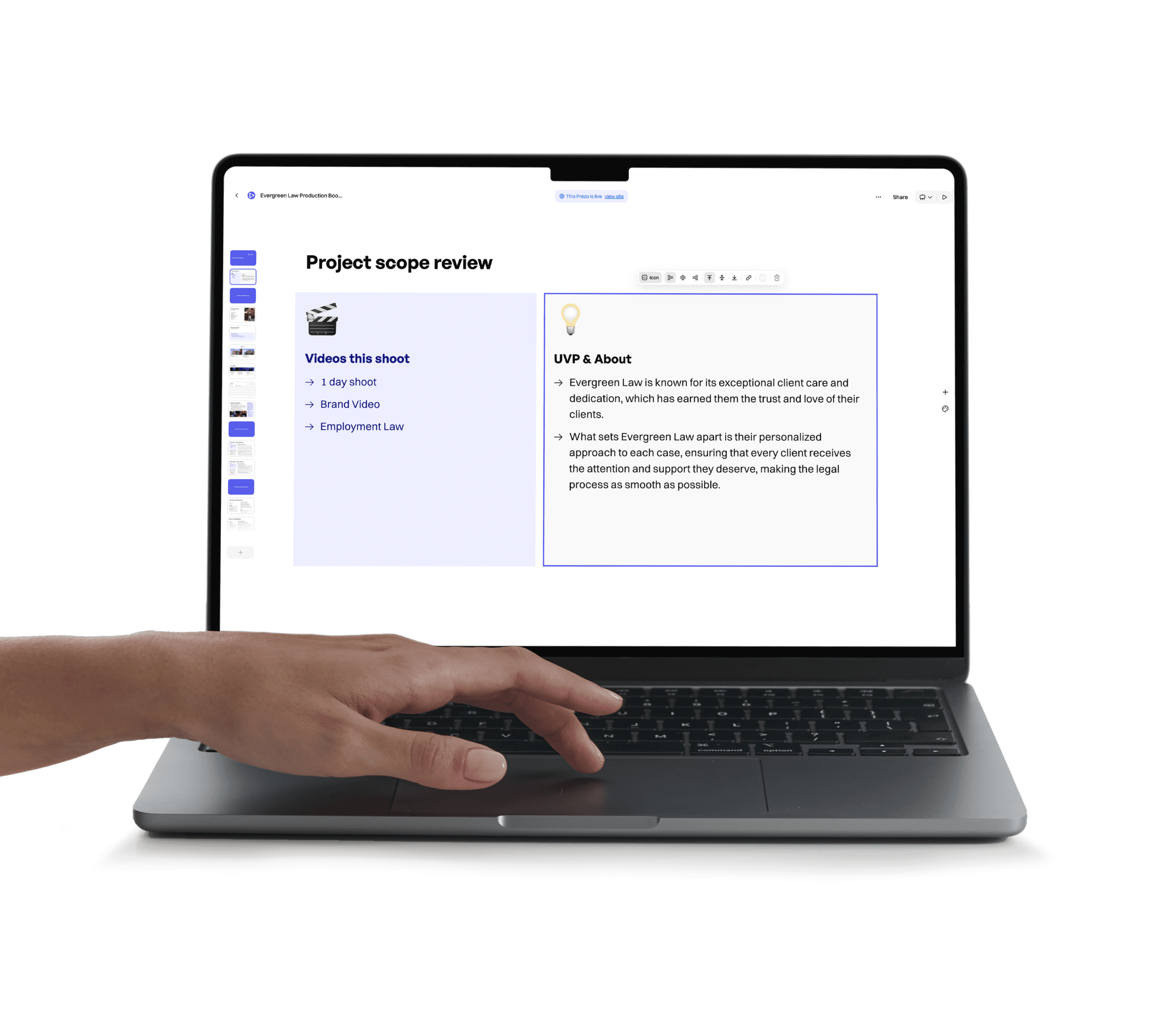

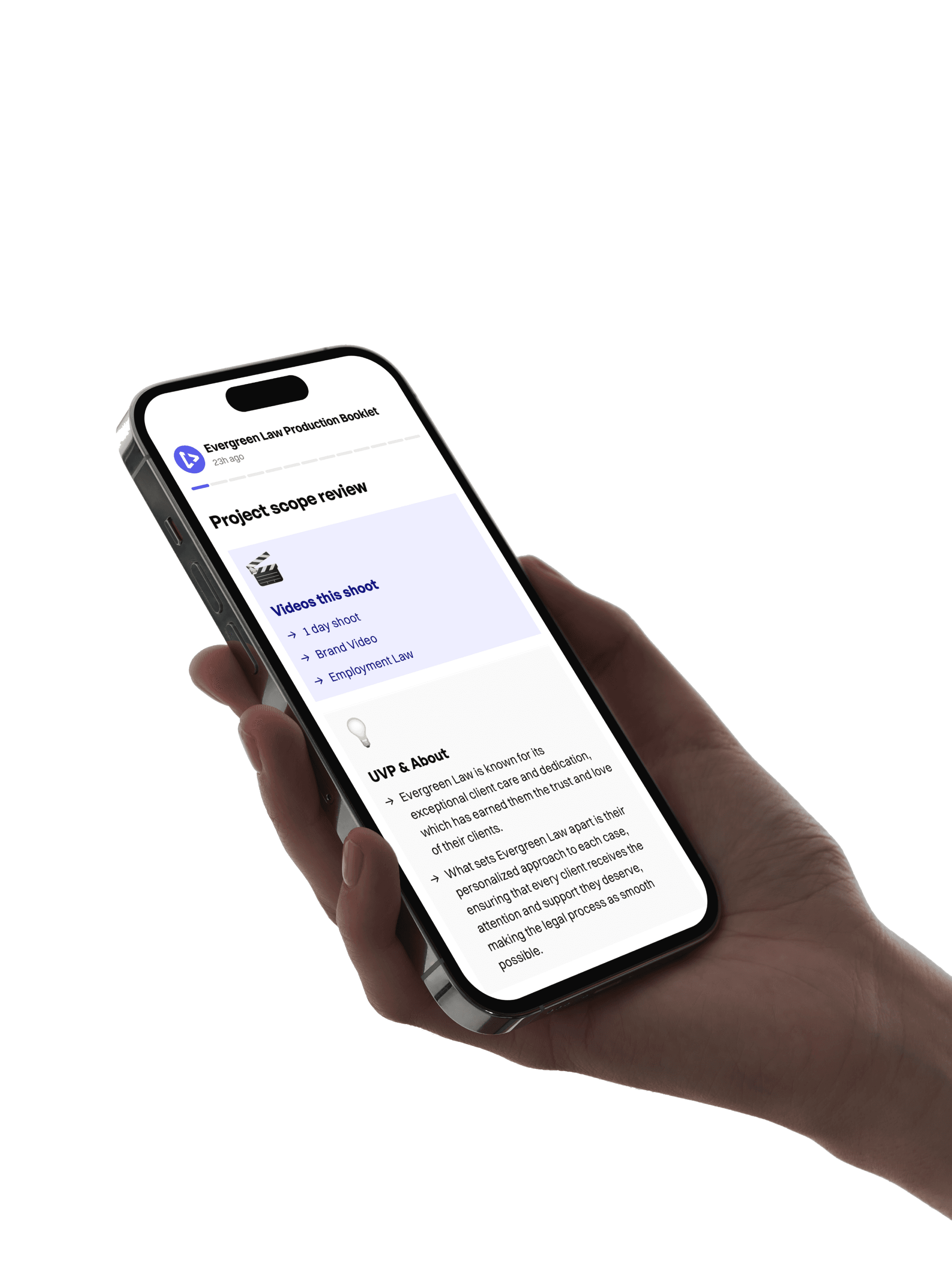

BACKGROUND
Starting Point
Prezo helps users to generate AI-powered slides from simple prompts. However, the initial AI generation quality was inconsistent. To address this, I joined the team to improve the AI capabilities and create a reliable AI experience.
BACKGROUND
Starting Point
Prezo helps users to generate AI-powered slides from simple prompts. However, the initial AI generation quality was inconsistent. To address this, I joined the team to improve the AI capabilities and create a reliable AI experience.
Video demonstration of the product
Video demonstration of the product
Horrible Retention Rate
On my first day at Prezo, the founder presented a concerning retention chart during a brainstorming session. Recognizing that retention is vital for long-term growth, I was assigned to investigate the reasons behind the poor retention rate.
Horrible Retention Rate
On my first day at Prezo, the founder presented a concerning retention chart during a brainstorming session. Recognizing that retention is vital for long-term growth, I was assigned to investigate the reasons behind the poor retention rate.
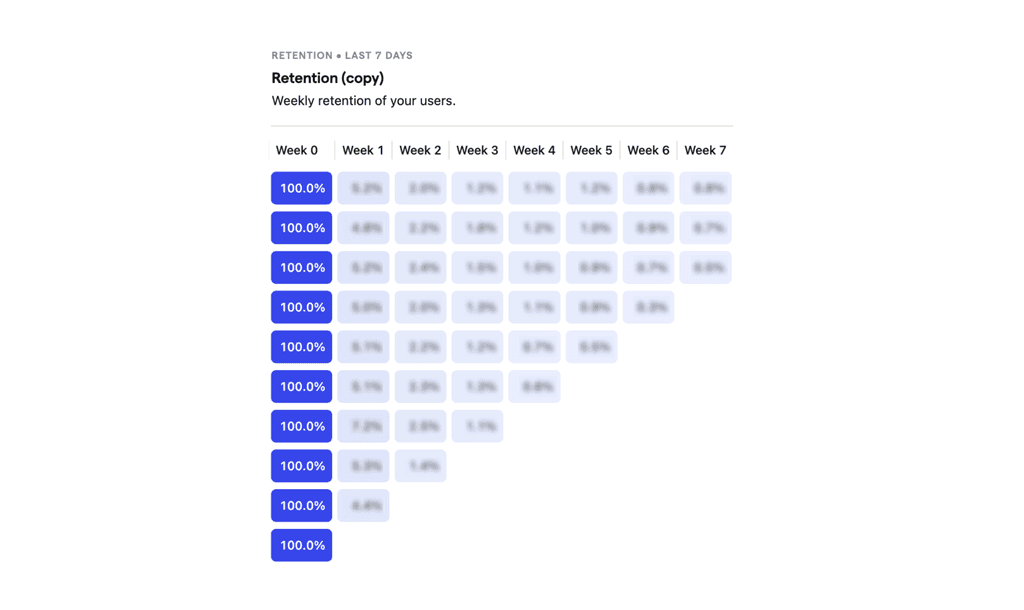

My Role
I drove new product initiatives, UX/UI, and brand identity. This role involved collaborating closely with engineers and potential users to effectively execute the design and aim to define the product-market fit.
My Role
I drove new product initiatives, UX/UI, and brand identity. This role involved collaborating closely with engineers and potential users to effectively execute the design and aim to define the product-market fit.
RESEARCH
Observing Existing User Data
I closely monitored tracked user data to gain insights into user behaviour and demographics. This included analyzing their use cases and demographics based on the content they created, click rates on buttons, and how they wrote the AI prompts.
RESEARCH
Observing Existing User Data
I closely monitored tracked user data to gain insights into user behaviour and demographics. This included analyzing their use cases and demographics based on the content they created, click rates on buttons, and how they wrote the AI prompts.
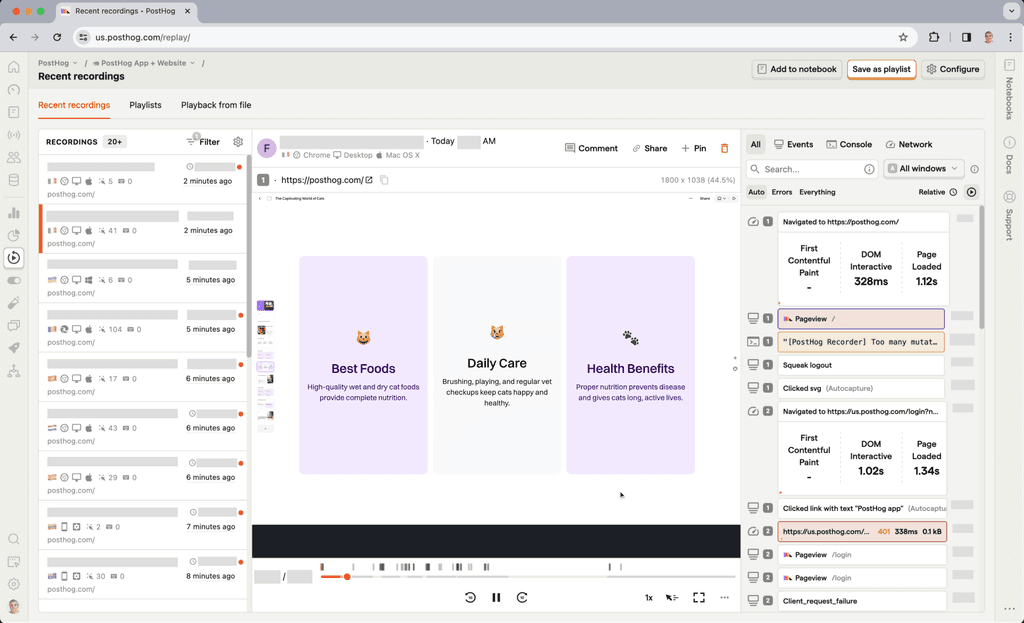

Screenshot of the analytics tool (PostHog)
Screenshot of the analytics tool (PostHog)
Behavioral Patterns Reveal User Pain Points
I found that many new users generate decks using the same short prompt multiple times, and they rarely utilize any deck editing features or rearrange slides.which indictor below product problems
Behavioral Patterns Reveal User Pain Points
I found that many new users generate decks using the same short prompt multiple times, and they rarely utilize any deck editing features or rearrange slides.which indictor below product problems
Extreme Short Prompt -> Low Motivation and Prompting Knowledge
Users often provide prompts of only 1 or 2 words due to low motivation and limited understanding of how to create effective prompts.
Extreme Short Prompt -> Low Motivation and Prompting Knowledge
Users often provide prompts of only 1 or 2 words due to low motivation and limited understanding of how to create effective prompts.
Generate Same Prompt Multiple Times -> The Results are Too Random
Users generated outputs multiple times, hoping for a better response, yet the inconsistency in results led to frustration with the product.
Generate Same Prompt Multiple Times -> The Results are Too Random
Users generated outputs multiple times, hoping for a better response, yet the inconsistency in results led to frustration with the product.
Limited Edit Activity -> Generated Results Don't Meet Expectations
Low click rates for the deck editing features after generation indicate that users feel the generated content is not good enough for them to work on.
Limited Edit Activity -> Generated Results Don't Meet Expectations
Low click rates for the deck editing features after generation indicate that users feel the generated content is not good enough for them to work on.
Key Goals
To address the user pain points mentioned above, I identified two key goals for achieving effective deck generation examples:
Key Goals
To address the user pain points mentioned above, I identified two key goals for achieving effective deck generation examples:

Help user to provide better prompt
Educate users on how to formulate effective prompts that maximize the AI's capabilities.

Help user to provide better prompt
Educate users on how to formulate effective prompts that maximize the AI's capabilities.

Consistent and high-quality result
Ensure that users receive reliable, high-quality results every time they engage with the product.

Consistent and high-quality result
Ensure that users receive reliable, high-quality results every time they engage with the product.
experiment
Learn from Failed Attempts
We implemented several features to help users modify their prompts and achieve better output. While some were ineffective, others caused significant issues or major breakdowns. Each experience provided valuable data that brought us closer to the right solution. Here are three failed initiatives we released:
experiment
Learn from Failed Attempts
We implemented several features to help users modify their prompts and achieve better output. While some were ineffective, others caused significant issues or major breakdowns. Each experience provided valuable data that brought us closer to the right solution. Here are three failed initiatives we released:


Co-Pilot Chatbox
The free text chat box enables follow-up prompts during deck editing but poses a high risk of breaking the file during testing.


Co-Pilot Chatbox
The free text chat box enables follow-up prompts during deck editing but poses a high risk of breaking the file during testing.
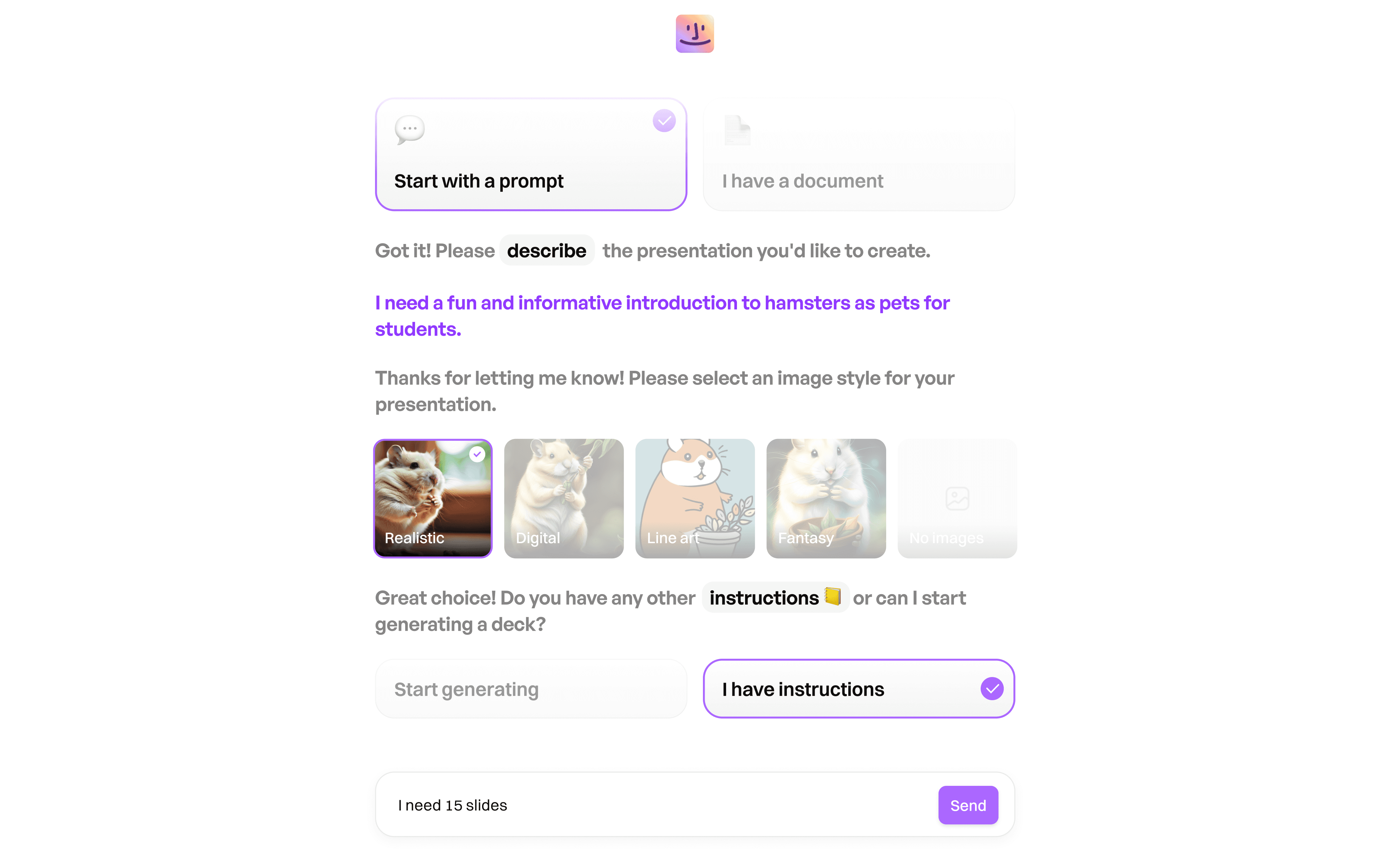

Step-by-Step Onboarding
Even when we focus users on answering more questions, it is still not enough for the AI to fully understand users' expectations.


Step-by-Step Onboarding
Even when we focus users on answering more questions, it is still not enough for the AI to fully understand users' expectations.
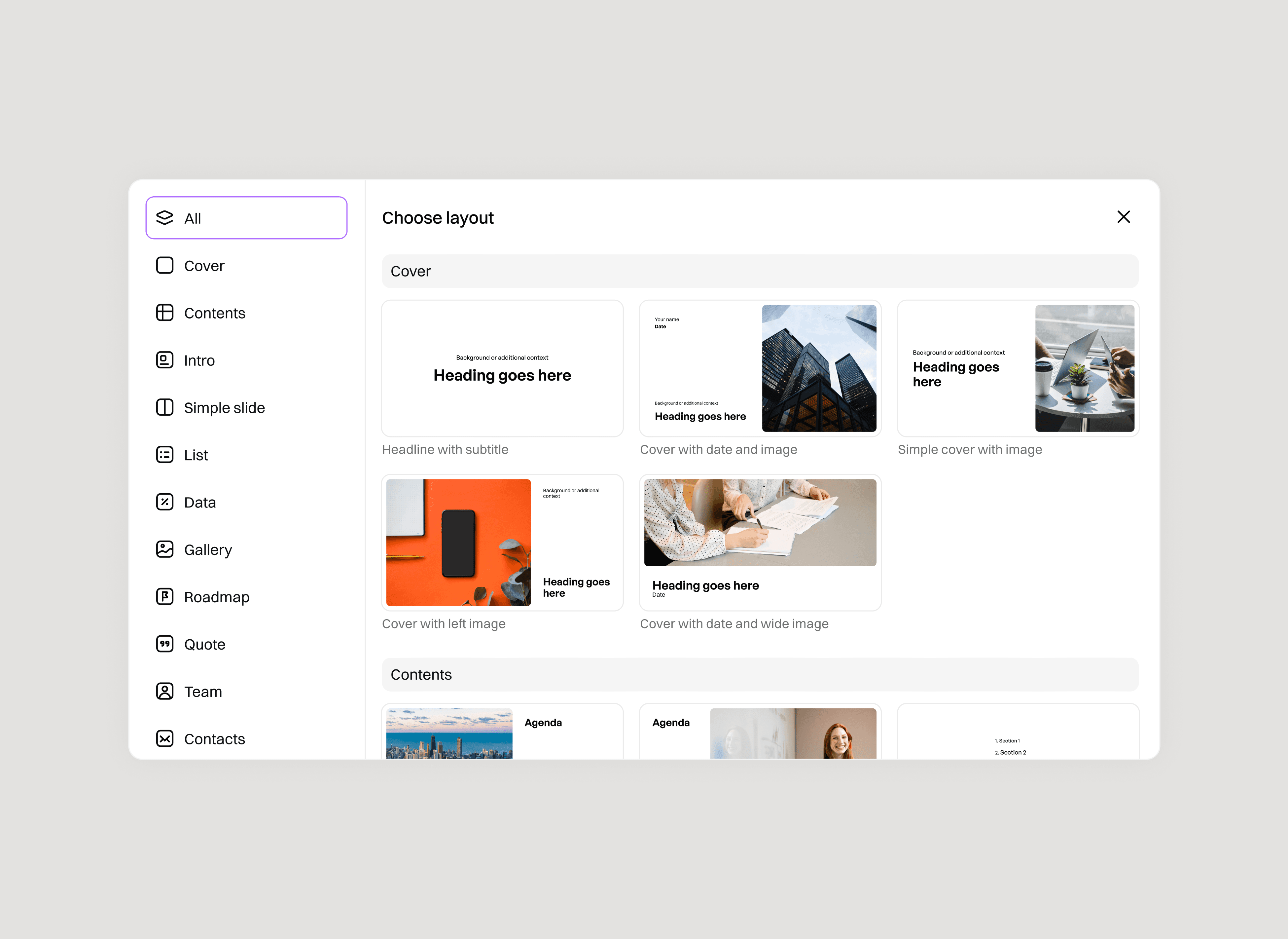

Enhance AI Layout Library
While better layouts enhance appeal, the quality of the content remains essential for effectiveness.


Enhance AI Layout Library
While better layouts enhance appeal, the quality of the content remains essential for effectiveness.
Defining the Right Prompting Format is Key to Better Generation Result
All failed tests show insufficient instructions to guide the AI. Since we were lack of resources to fine-tune our own language model, studying prompt formats is the most effective way to bridge the gap between users and AI. Therefore, a clear prompting format is essential. I tested various prompting formats using OpenAI Playground to identify one that is easy for everyone to write and straightforward for the AI to understand. Establishing the right structure is crucial for improving the quality of AI-generated outputs.
Defining the Right Prompting Format is Key to Better Generation Result
All failed tests show insufficient instructions to guide the AI. Since we were lack of resources to fine-tune our own language model, studying prompt formats is the most effective way to bridge the gap between users and AI. Therefore, a clear prompting format is essential. I tested various prompting formats using OpenAI Playground to identify one that is easy for everyone to write and straightforward for the AI to understand. Establishing the right structure is crucial for improving the quality of AI-generated outputs.
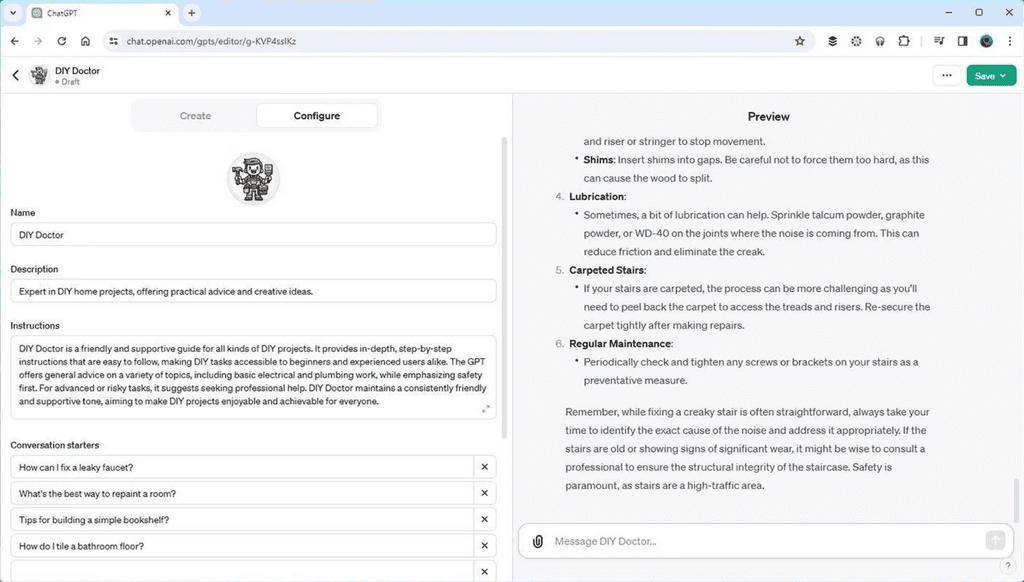

Testing prompt formats with OpenAI Playground
Testing prompt formats with OpenAI Playground
Instead of Telling AI How to Do It, Show Them Examples to Get High Accuracy
I found that giving the AI example content significantly improved the accuracy of its output. The AI effectively mimicked the format, length, tone, and content of the examples. While defining a good standard can be challenging, providing a good example for the AI to follow is much easier.
Instead of Telling AI How to Do It, Show Them Examples to Get High Accuracy
I found that giving the AI example content significantly improved the accuracy of its output. The AI effectively mimicked the format, length, tone, and content of the examples. While defining a good standard can be challenging, providing a good example for the AI to follow is much easier.


TESTING
Convert Existing Deck to System Prompt
Knowing example content is key. I believe AI can convert any existing Prezo deck as part of the system prompts. Not only will this provide content examples, but the AI can also maintain the layout from the example deck. This further reduces the prompts that users need to provide while ensuring the AI has sufficient information to generate high-quality results.
TESTING
Convert Existing Deck to System Prompt
Knowing example content is key. I believe AI can convert any existing Prezo deck as part of the system prompts. Not only will this provide content examples, but the AI can also maintain the layout from the example deck. This further reduces the prompts that users need to provide while ensuring the AI has sufficient information to generate high-quality results.
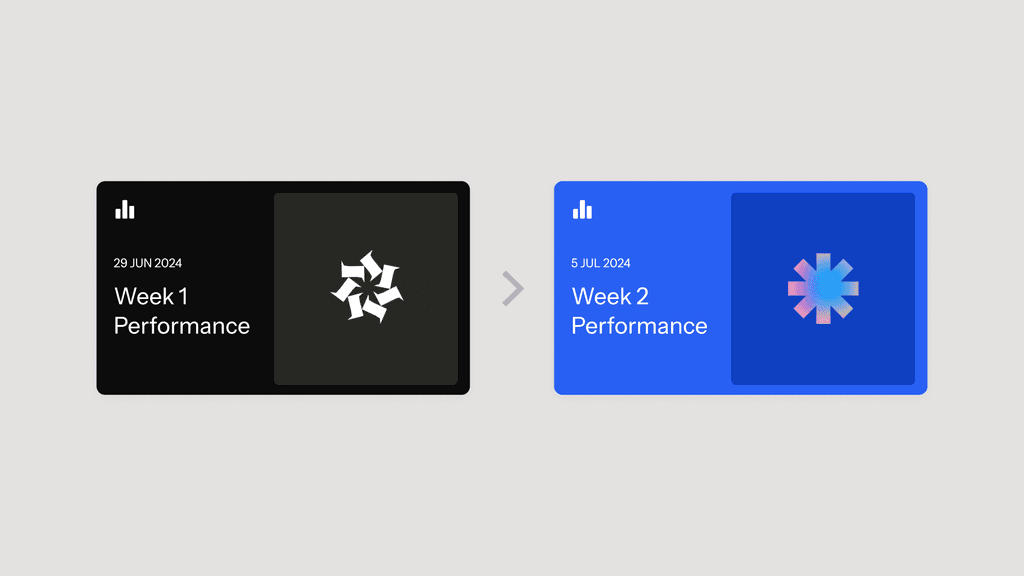

Who will Benefit from Example Deck System Prompt
The example prompting method is effective, but it has limitations regarding layout and content formats. After consolidating existing user data and summarizing the user types and insights in the table below.
Who will Benefit from Example Deck System Prompt
The example prompting method is effective, but it has limitations regarding layout and content formats. After consolidating existing user data and summarizing the user types and insights in the table below.
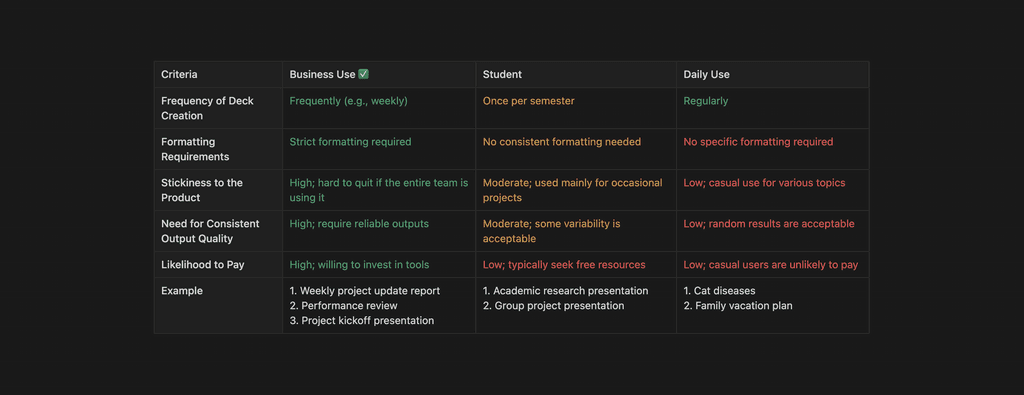

Business Use Case Leverage Deck Format Constraints and Have Strong Monetization Potential
The business use case has the most green indicators in the table, emphasizing its strengths. This indicates that the business use case is the most suitable for the Deck-to-System prompt concept and possesses significant potential for monetization.
Business Use Case Leverage Deck Format Constraints and Have Strong Monetization Potential
The business use case has the most green indicators in the table, emphasizing its strengths. This indicates that the business use case is the most suitable for the Deck-to-System prompt concept and possesses significant potential for monetization.
Validate the Idea with Business Users
To ensure the effectiveness of the proposed example deck prompting, we collaborated with a production firm that creates daily production booklets. Through interviews, we learned more about their use cases, allowing us to gather the requirements for building an MVP tailored to their needs.
Validate the Idea with Business Users
To ensure the effectiveness of the proposed example deck prompting, we collaborated with a production firm that creates daily production booklets. Through interviews, we learned more about their use cases, allowing us to gather the requirements for building an MVP tailored to their needs.
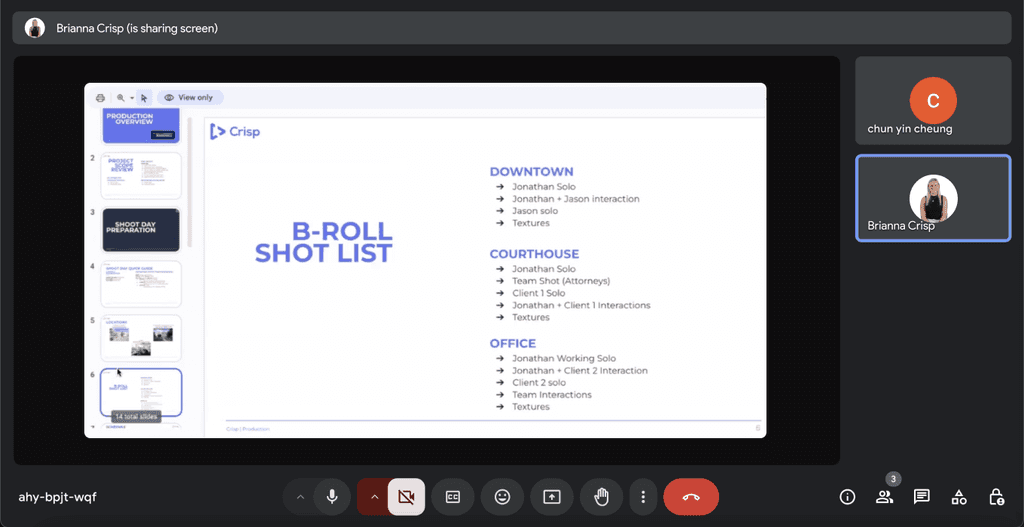

Rapid MVP and Receive Positive User Feedback
Our team was excited about this opportunity, so we quickly developed a minimum viable product (MVP) in 3 Days to validate the idea. I created a Prezo version of the production deck for the client and handed it to the development team to set up as a system prompt. After testing, it worked well, and the users loved it.
Rapid MVP and Receive Positive User Feedback
Our team was excited about this opportunity, so we quickly developed a minimum viable product (MVP) in 3 Days to validate the idea. I created a Prezo version of the production deck for the client and handed it to the development team to set up as a system prompt. After testing, it worked well, and the users loved it.
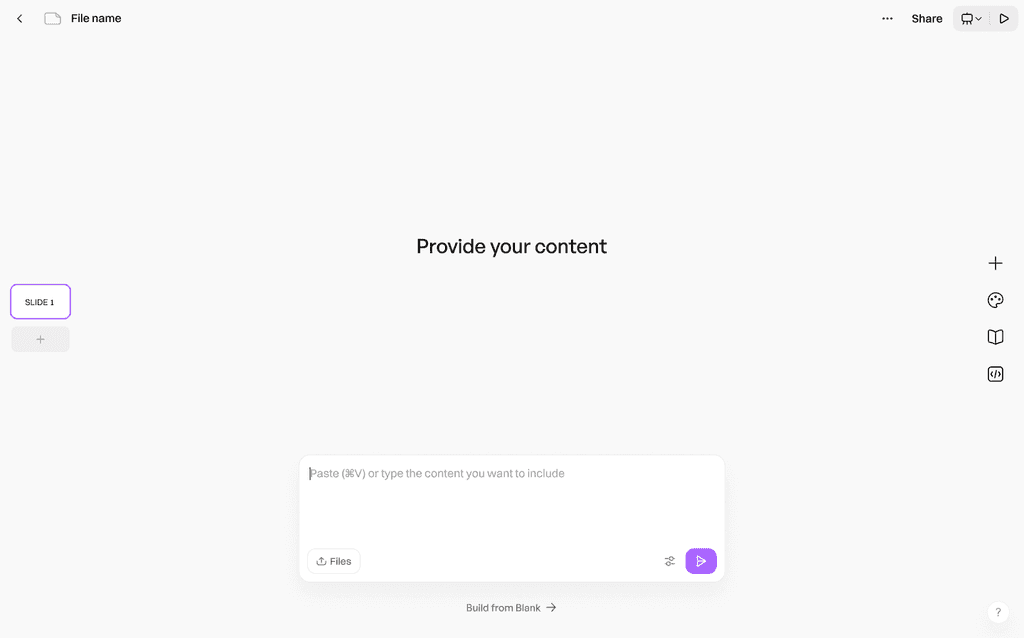

Empty UI using existing components to create MVP
Empty UI using existing components to create MVP
Revise & Improve
Enhance MVP with User Feedback
After we shipped the MVP, I tracked the data and conducted user interviews to further optimize the prompting workflow and drive data-driven enhancements. Here is some user feedback along with the changes implemented based on their insights:
Revise & Improve
Enhance MVP with User Feedback
After we shipped the MVP, I tracked the data and conducted user interviews to further optimize the prompting workflow and drive data-driven enhancements. Here is some user feedback along with the changes implemented based on their insights:
Users Prefer Pasting and Editing Existing Prompts
I discovered that users often copy their existing prompts from notes and paste them into the field instead of typing new prompts.
Users Prefer Pasting and Editing Existing Prompts
I discovered that users often copy their existing prompts from notes and paste them into the field instead of typing new prompts.
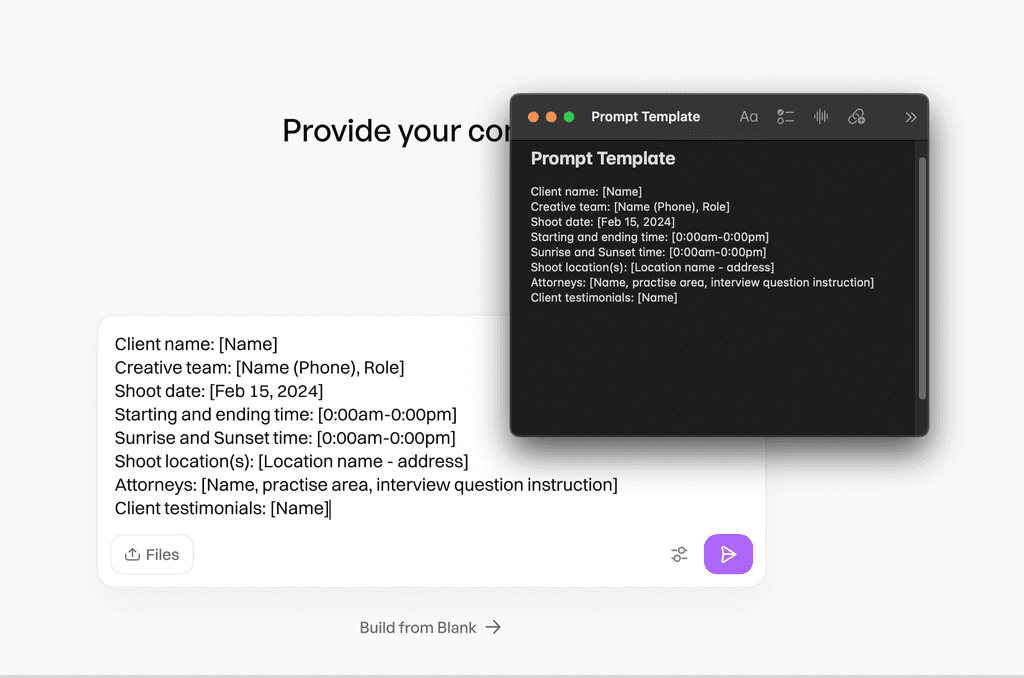

New "Prompt Template" Button for Quick Pasting
Users can now utilize the "Prompt Template" button to quickly paste their saved prompt formats, ready for editing.
New "Prompt Template" Button for Quick Pasting
Users can now utilize the "Prompt Template" button to quickly paste their saved prompt formats, ready for editing.
High Accuracy of Extracted Information
In the MVP, we added a confirmation table for users to edit the extracted information before the AI generated the deck. However, the accuracy was surprisingly high, with users rarely needing to make edits.
High Accuracy of Extracted Information
In the MVP, we added a confirmation table for users to edit the extracted information before the AI generated the deck. However, the accuracy was surprisingly high, with users rarely needing to make edits.
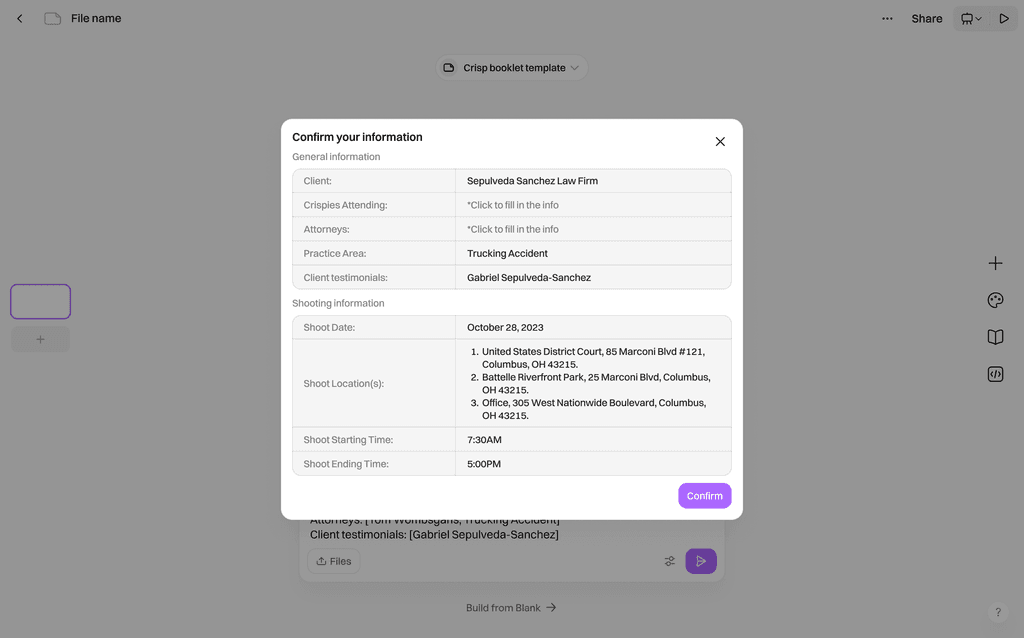

Remove Underused Table for Efficiency
The confirmation table took time for the AI to extract and generate, and since it was not useful, we decided to remove it. This change saves loading time and enhances overall efficiency.
Remove Underused Table for Efficiency
The confirmation table took time for the AI to extract and generate, and since it was not useful, we decided to remove it. This change saves loading time and enhances overall efficiency.
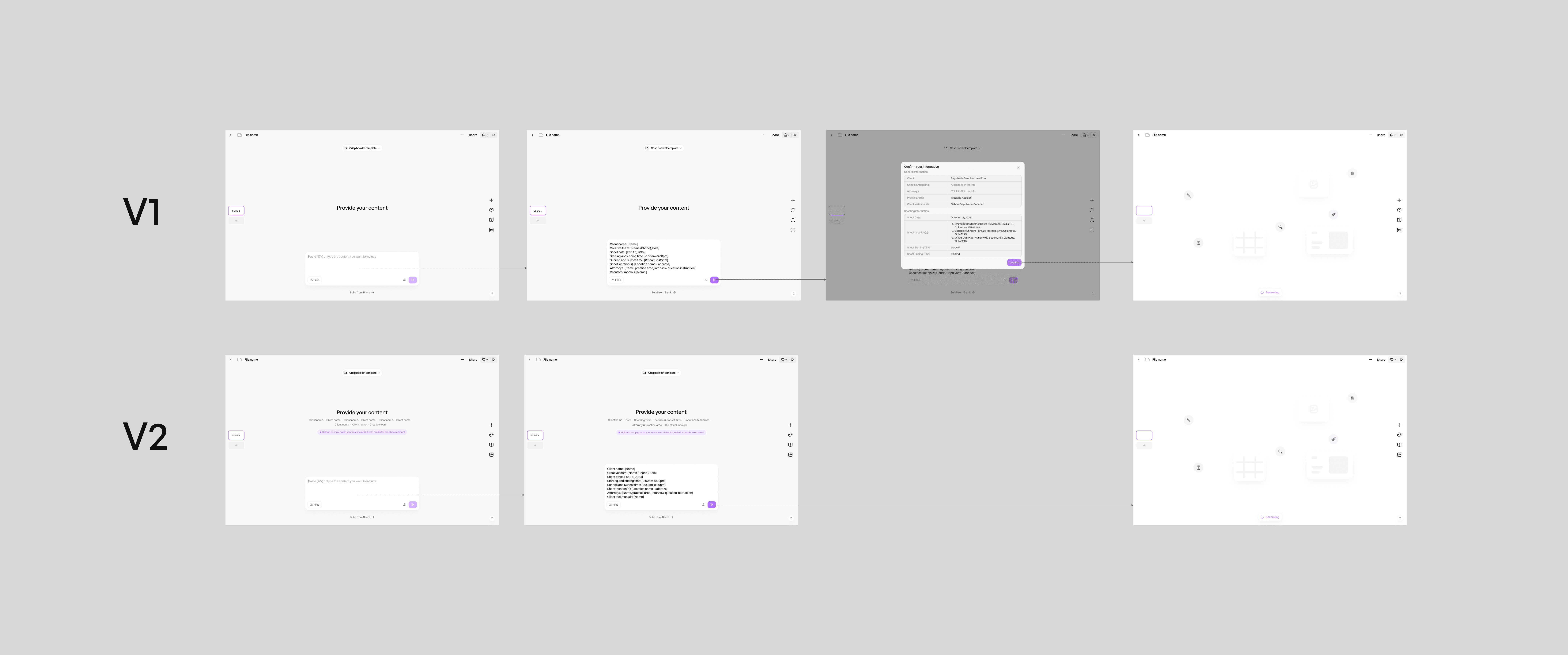

OUTCOME
The End Result
I refined the UI based on user feedback, which not only enhances usability but also streamlines the slide creation process, making it easier for users to produce high-quality presentations efficiently. Here’s how it works:
OUTCOME
The End Result
I refined the UI based on user feedback, which not only enhances usability but also streamlines the slide creation process, making it easier for users to produce high-quality presentations efficiently. Here’s how it works:
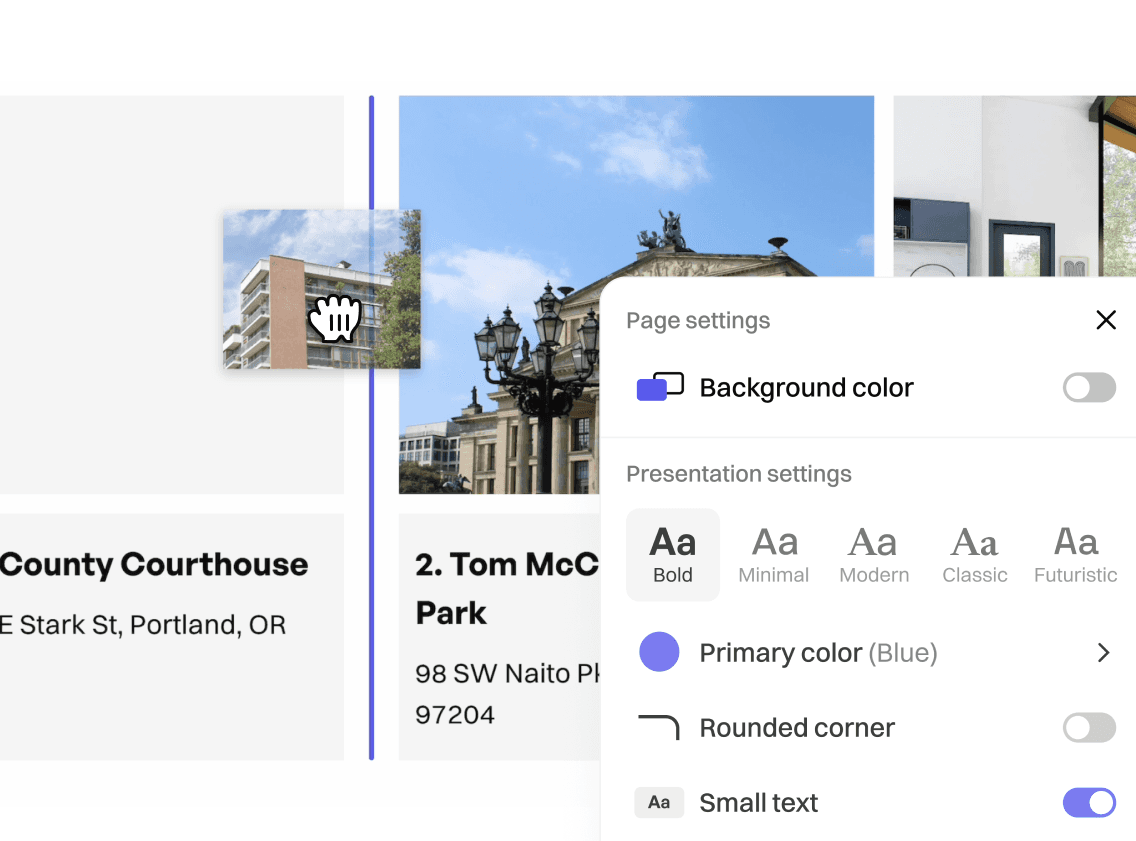
1. Build a Prezo Deck
Create a deck using Prezo, leveraging the existing blocks and design settings.

1. Build a Prezo Deck
Create a deck using Prezo, leveraging the existing blocks and design settings.
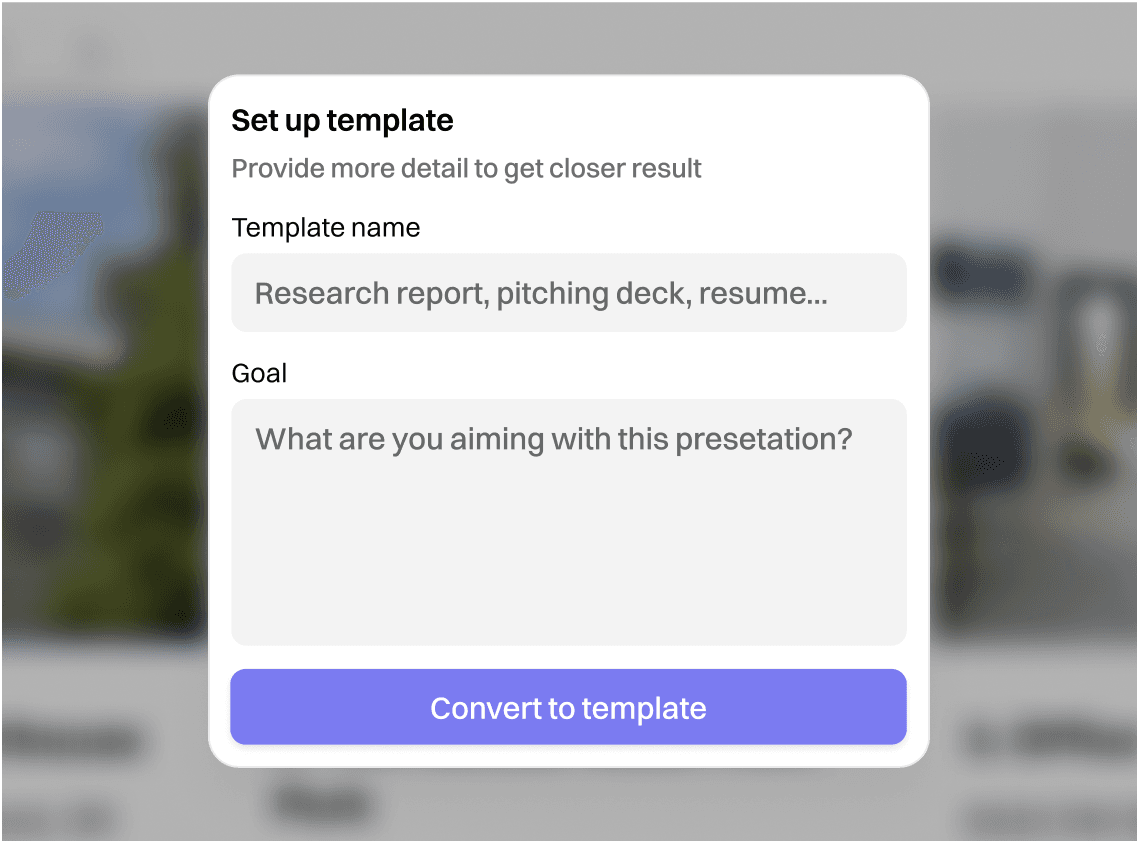
2. Convert the Deck to a Template
Convert the deck into a reusable template and set up template name and goal.

2. Convert the Deck to a Template
Convert the deck into a reusable template and set up template name and goal.
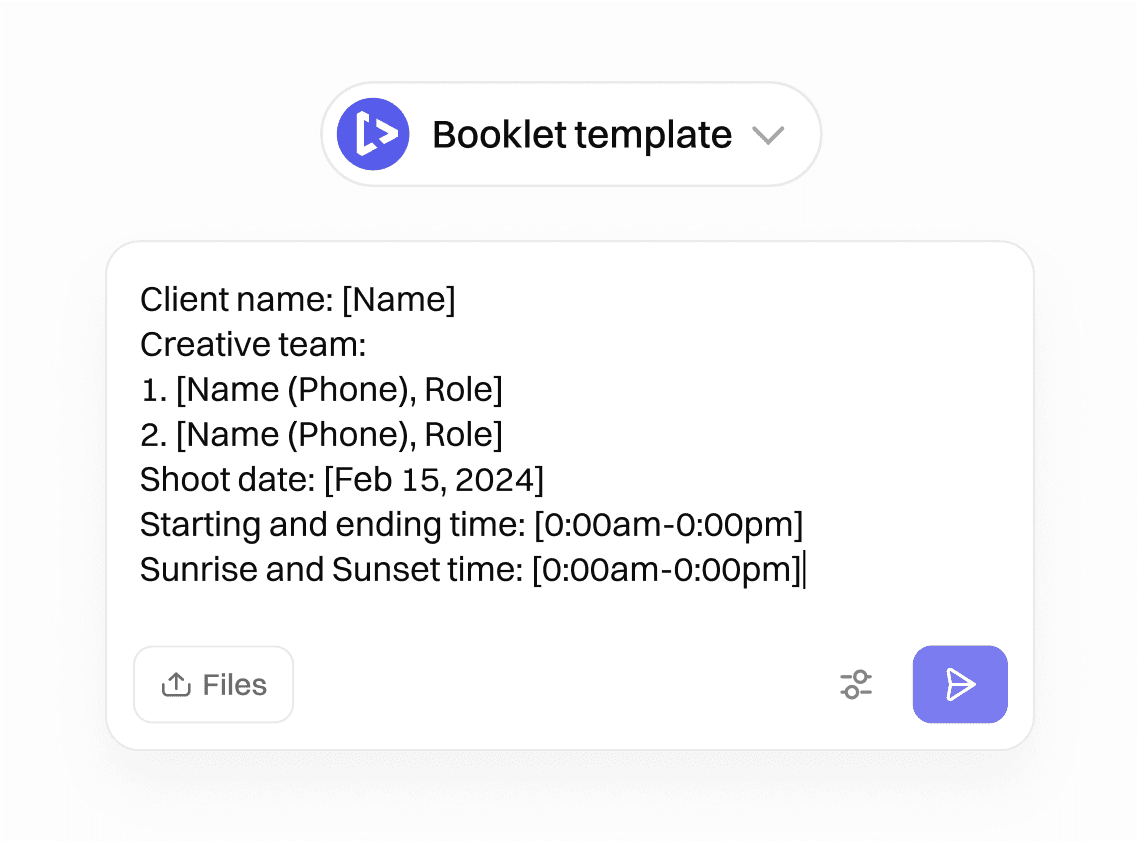
3. Generate New Deck
Enter the content into the prompt field, and the AI will generate the new slides.

3. Generate New Deck
Enter the content into the prompt field, and the AI will generate the new slides.
Our Client Are Thrilled to Continue the Partnership!
We received excellent feedback from users, who reported saving more than 60% of their time on daily deck building. We are thrilled to continue our partnership based on this success.
Our Client Are Thrilled to Continue the Partnership!
We received excellent feedback from users, who reported saving more than 60% of their time on daily deck building. We are thrilled to continue our partnership based on this success.
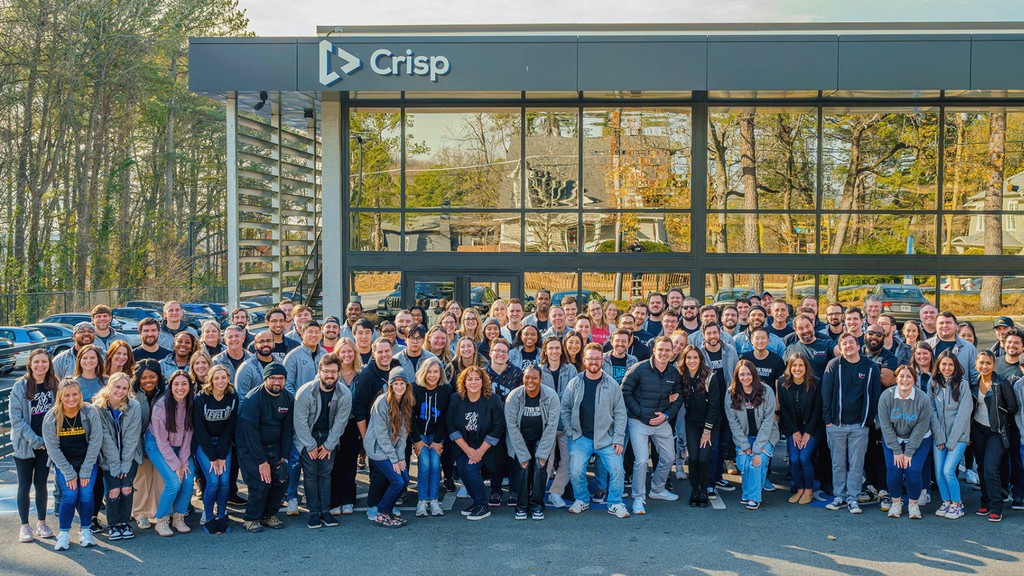

Crisp, our first collaborated client
Crisp, our first collaborated client
The Impact
By introducing new features, listening to user feedback, and continuously evolving the product, I was able to drive significant organic growth for the product.
The Impact
By introducing new features, listening to user feedback, and continuously evolving the product, I was able to drive significant organic growth for the product.
32%
32%
Increase in user retention rate
60%
60%
Reduce deck building time with a new enterprise solution
Breakthrough
Before & After
In addition to the AI solution, we also provided some new features for business users to improve their brand and user experience.
Breakthrough
Before & After
In addition to the AI solution, we also provided some new features for business users to improve their brand and user experience.
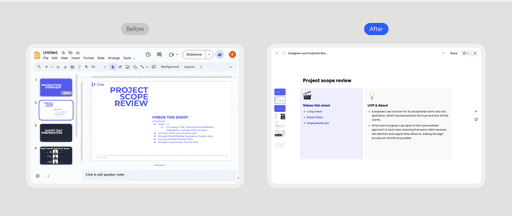

Cluttered → Neat
No more overwhelming buttons, giving a clean workspace that provides only the essential elements.
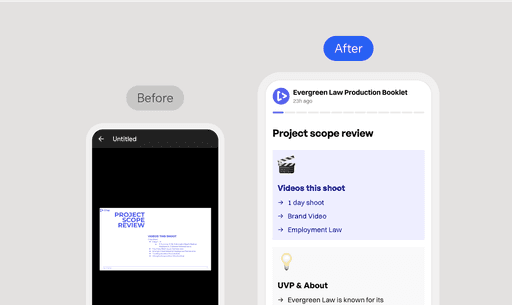

Static → Responsive
Most users in a shooting scenario won't bring their laptops, so we made the content mobile-friendly.
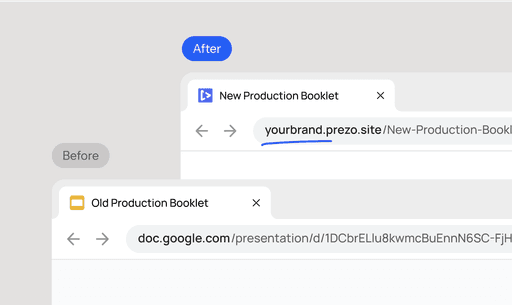

Nobody → Distinctive
We gave users a custom domain name and favicon to make the deck more distinctive to their clients.
AND MORE
More Font, Color, and Format Options
At the design level, we implemented several changes to empower non-designers to create with more personality and brand uniqueness. By switching to a web page view, users can stack slides as a website without any coding required. This approach enhances creativity and allows users to personalize their projects more effectively.
AND MORE
More Font, Color, and Format Options
At the design level, we implemented several changes to empower non-designers to create with more personality and brand uniqueness. By switching to a web page view, users can stack slides as a website without any coding required. This approach enhances creativity and allows users to personalize their projects more effectively.
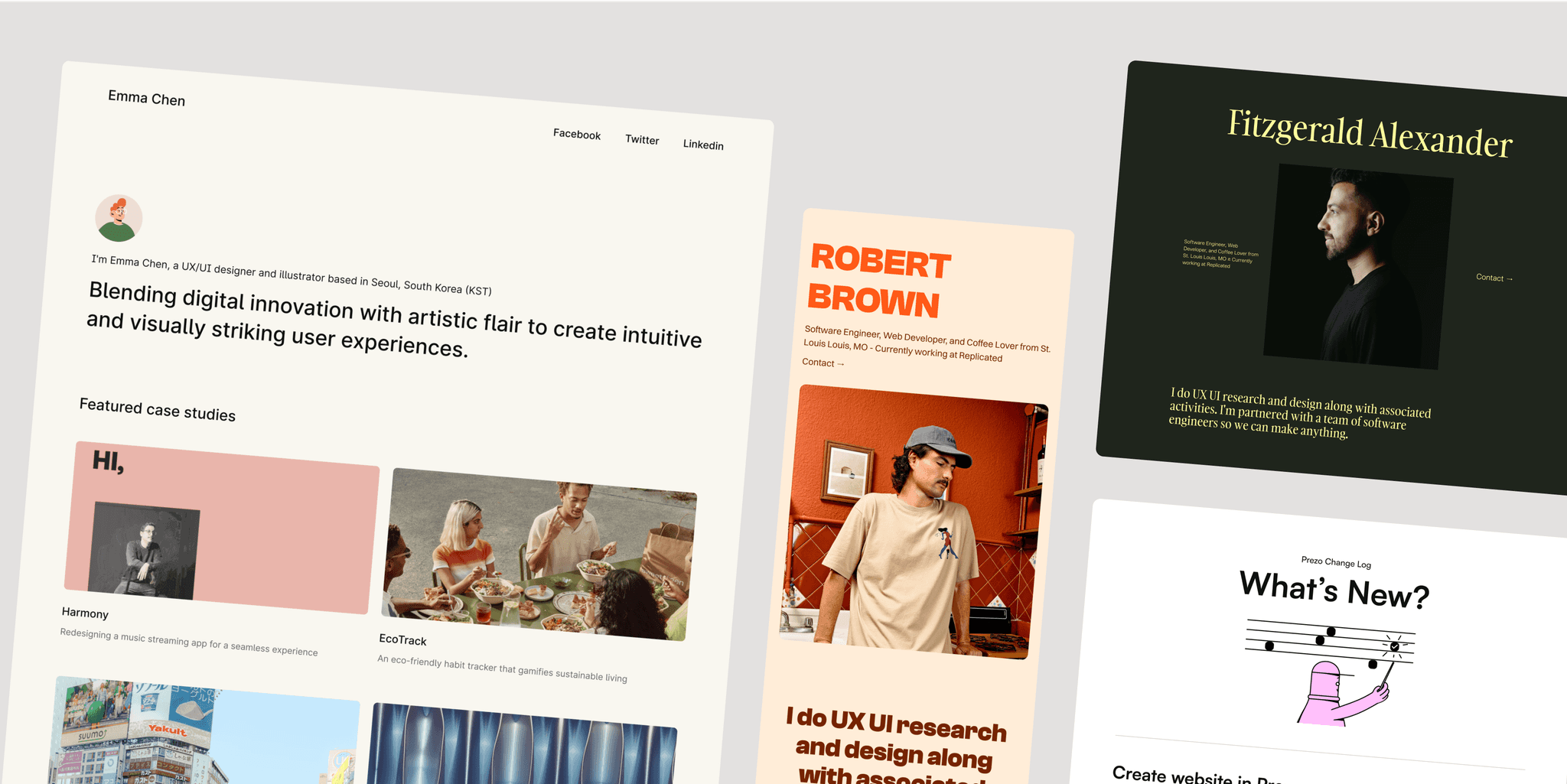


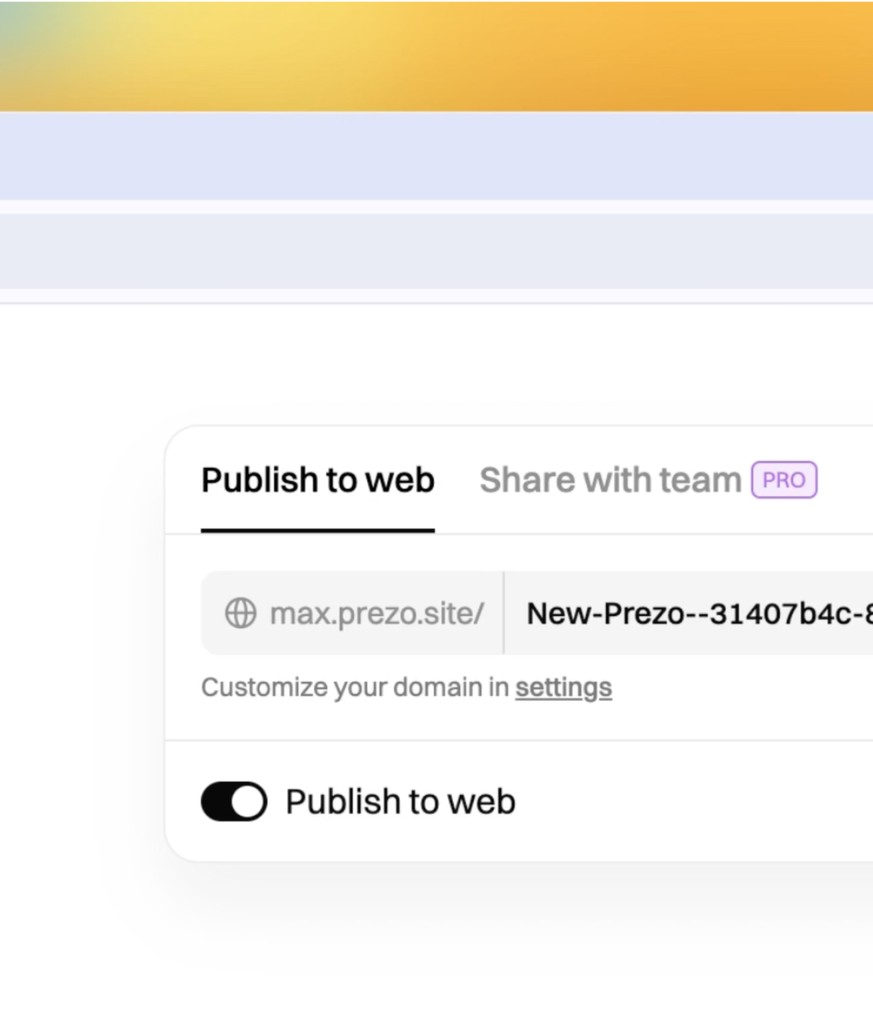
View Other
Case Studies
View Other
Case Studies

